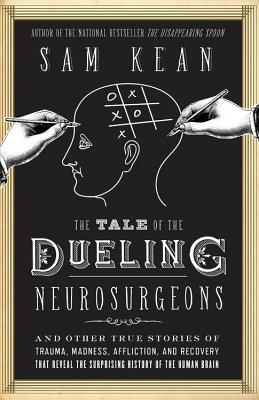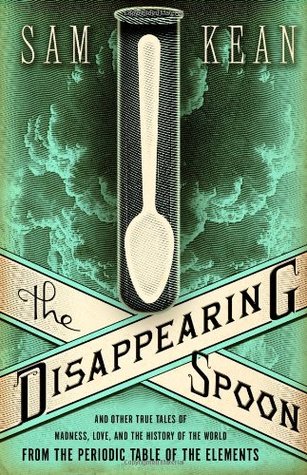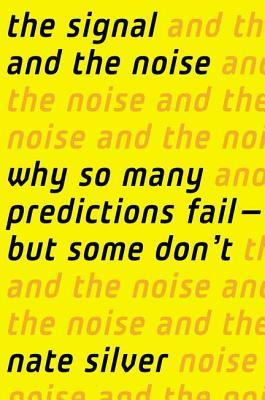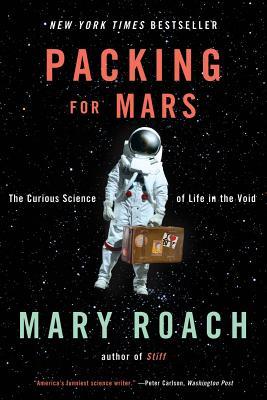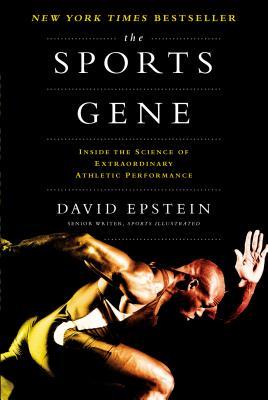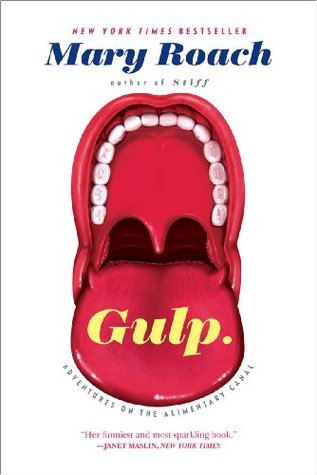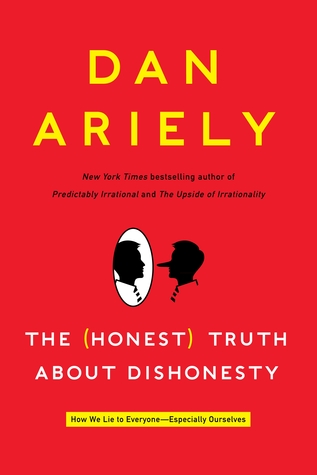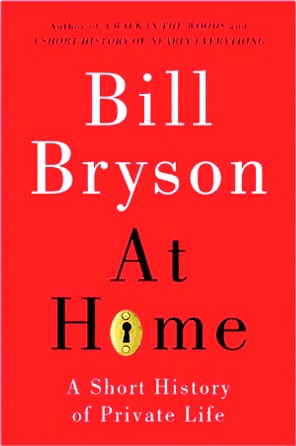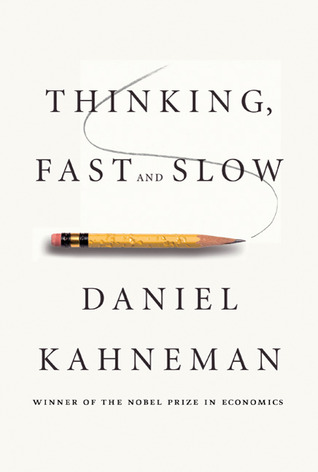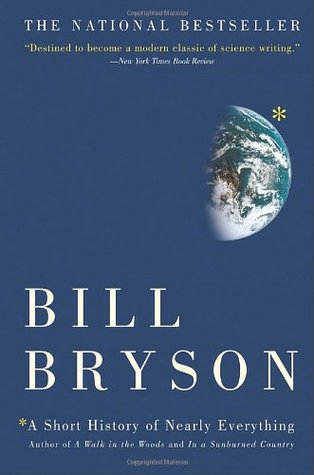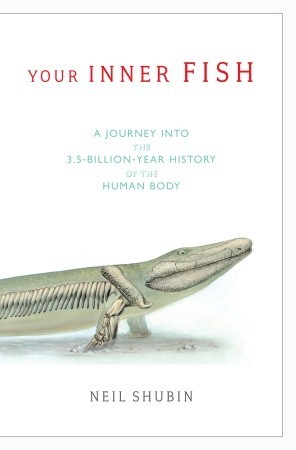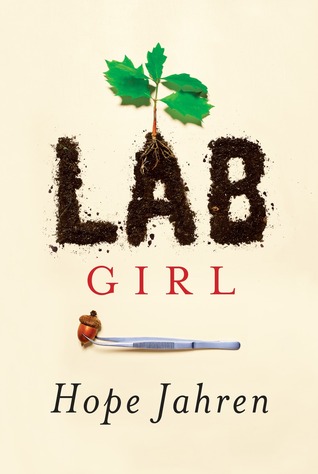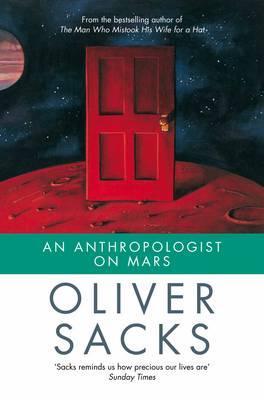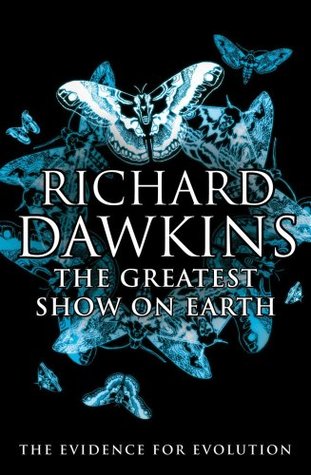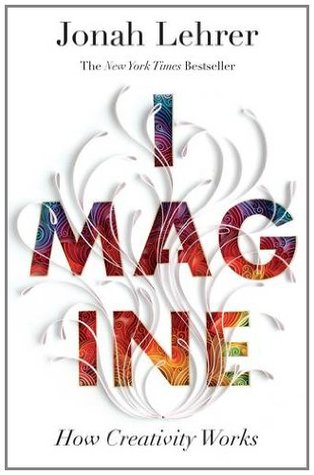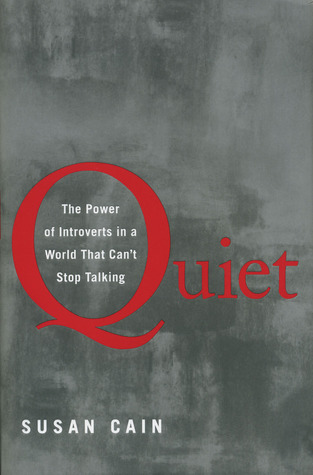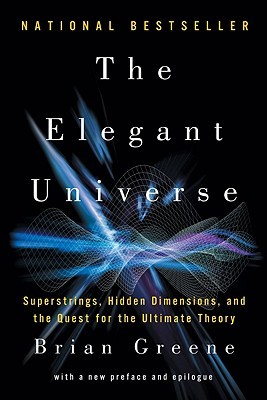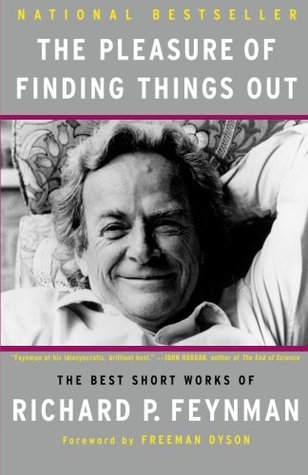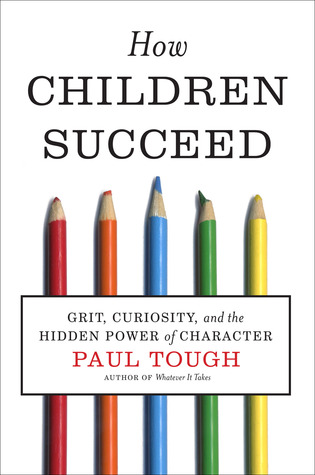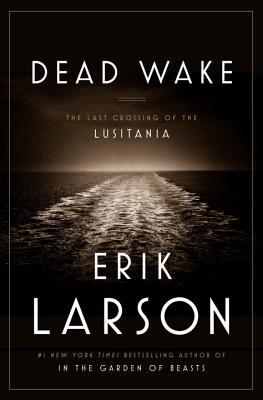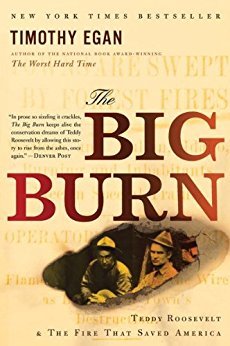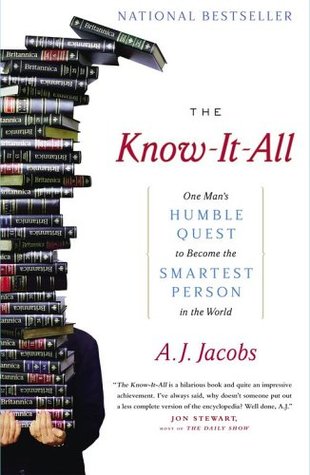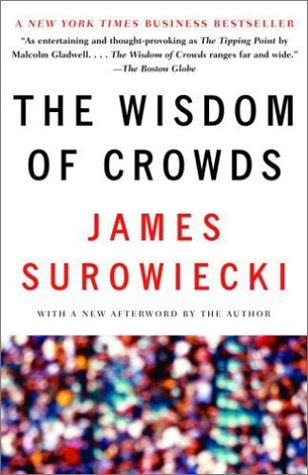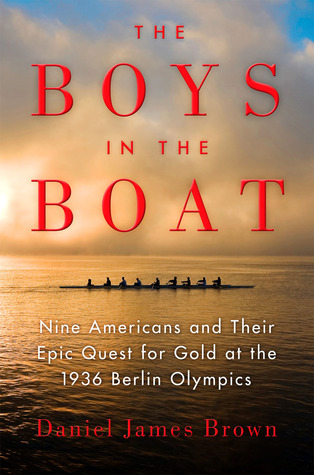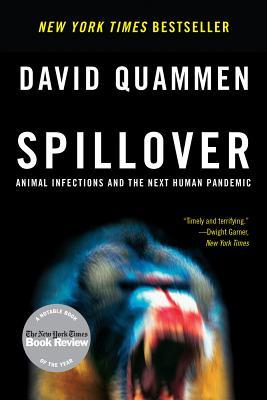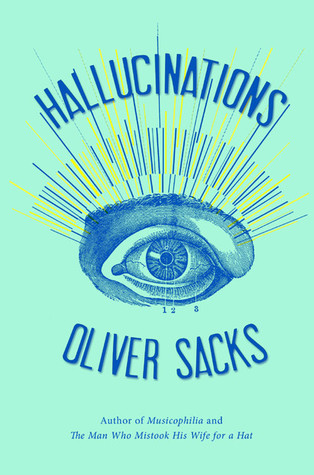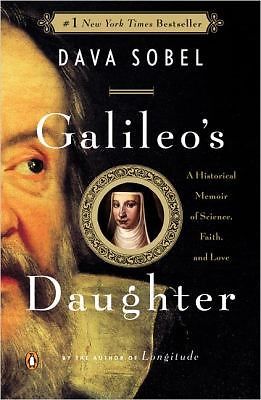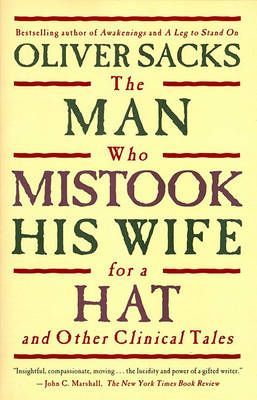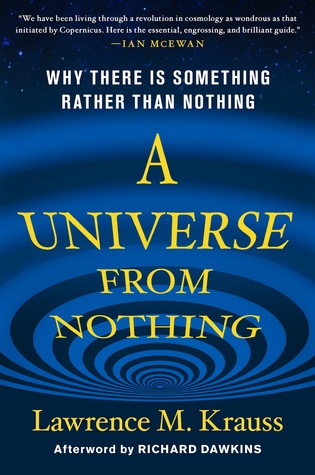Powered by a book like {foo}
Recommendations based on The Violinist's Thumb: And Other Lost Tales of Love, War, and Genius, as Written by Our Genetic Codeby Sam Kean
* statistically, based on millions of data-points provided by fellow humans
The Tale of the Dueling Neurosurgeons: The History of the Human Brain as Revealed by True Stories of Trauma, Madness, and Recovery
by Sam Kean
A captivating exploration of the history of the human brain, unraveled through fascinating case studies.
From the author of the bestseller, The Disappearing Spoon, tales of the brain and the history of neuroscience. Early studies of the functions of the human brain used a simple method: wait for ... (Goodreads)
The Disappearing Spoon: And Other True Tales of Madness, Love, and the History of the World from the Periodic Table of the Elements
by Sam Kean
Fascinating tales of discovery and exploration of the elements of the periodic table.
Why did Gandhi hate iodine (I, 53)? Why did the Japanese kill Godzilla with missiles made of cadmium (Cd, 48)? How did radium (Ra, 88) nearly ruin Marie Curie's reputation? And why did tellurium (Te, ... (Goodreads)
The Signal and the Noise: Why So Many Predictions Fail—But Some Don't
by Nate Silver
An exploration of the art and science of prediction, examining why some predictions succeed while others fail.
Nate Silver built an innovative system for predicting baseball performance, predicted the 2008 election within a hair's breadth. He solidified his standing as the nation's foremost political ... (Goodreads)
Packing for Mars: The Curious Science of Life in the Void
by Mary Roach
Exploring the science, technology and culture of human space travel.
The best-selling author of Stiff and Bonk explores the irresistibly strange universe of space travel and life without gravity. From the Space Shuttle training toilet to a crash test of NASA’s new ... (Goodreads)
The Sports Gene: Inside the Science of Extraordinary Athletic Performance
by David Epstein
Investigates the role of genetics in athletic performance, challenging the notion of natural talent and hard work as the sole determinants of success.
Now a, New York Times, Bestseller! With a new chapter added to the paperback. In high school, I wondered whether the Jamaican Americans who made our track team so successful might carry some special ... (Goodreads)
Gulp: Adventures on the Alimentary Canal
by Mary Roach
A journey through the digestive system, exploring its secrets and mysteries.
The irresistible, ever-curious, and always best-selling Mary Roach returns with a new adventure to the invisible realm we carry around inside. “America’s funniest science writer” ( Washington Post ) ... (Barnes & Noble)
The Honest Truth About Dishonesty: How We Lie to Everyone - Especially Ourselves
by Dan Ariely
Examines why people lie and how dishonesty affects our lives.
Het wetenschappelijk bewijs liegt er niet om: zelfs de meest eerlijke mensen nemen meerdere keren per dag een loopje met de waarheid. Hóé (on)eerlijk we zijn blijkt verrassend genoeg afhankelijk van ... (Goodreads)
At Home: A Short History of Private Life
by Bill Bryson
An exploration of the extraordinary and often overlooked history of the home.
“Houses aren’t refuges from history. They are where history ends up.” Bill Bryson and his family live in a Victorian parsonage in a part of England where nothing of any great significance has ... (Goodreads)
Thinking, Fast and Slow
by Daniel Kahneman
An exploration of the two systems of the mind, and how they influence decision-making.
In the highly anticipated Thinking, Fast and Slow , Kahneman takes us on a groundbreaking tour of the mind and explains the two systems that drive the way we think. System 1 is fast, intuitive, and ... (Goodreads)
A Short History of Nearly Everything
by Bill Bryson
A captivating overview of the natural sciences, spanning the history of the universe.
In Bryson's biggest book, he confronts his greatest challenge: to understand—and, if possible, answer—the oldest, biggest questions we have posed about the universe and ourselves. Taking as territory ... (Goodreads)
Your Inner Fish: a Journey into the 3.5-Billion-Year History of the Human Body
by Neil Shubin
Exploration of human evolution through the lens of anatomy, revealing our connection to our ancient ancestors.
Why do we look the way we do? What does the human hand have in common with the wing of a fly? Are breasts, sweat glands, and scales connected in some way? To better understand the inner workings of ... (Goodreads)
Lab Girl
by Hope Jahren
A memoir about a young woman's journey to discover her scientific calling and resilience.
Acclaimed scientist Hope Jahren has built three laboratories in which she’s studied trees, flowers, seeds, and soil. Her first book is a revelatory treatise on plant life—but it is also so much ... (Goodreads)
An Anthropologist on Mars: Seven Paradoxical Tales
by Oliver Sacks
Study of human behavior, exploring the complexities of neurological conditions.
Paradoxical portraits of seven neurological patients, including a surgeon consumed by the compulsive tics of Tourette's syndrome unless he is operating; an artist who loses all sense of color in a ... (Goodreads)
The Greatest Show on Earth: The Evidence for Evolution
by Richard Dawkins
An exploration of the evidence and science of evolution, highlighting its importance in understanding the history of life on Earth.
Charles Darwin’s masterpiece, On the Origin of Species , shook society to its core on publication in 1859. Darwin was only too aware of the storm his theory of evolution would provoke but he would ... (Goodreads)
Imagine: How Creativity Works
by Jonah Lehrer
Exploring the science and psychology of creativity to understand how ideas are born and flourish.
Did you know that the most creative companies have centralized bathrooms? That brainstorming meetings are a terrible idea? That the color blue can help you double your creative output? From the New ... (Goodreads)
Quiet: The Power of Introverts in a World That Can't Stop Talking
by Susan Cain
An exploration of the power of introversion, examining the implications of modern society's emphasis on extroversion.
The book that started the Quiet Revolution, At least one-third of the people we know are introverts. They are the ones who prefer listening to speaking; who innovate and create but dislike ... (Goodreads)
The Elegant Universe: Superstrings, Hidden Dimensions, and the Quest for the Ultimate Theory
by Brian Greene
Exploring the hidden realms of physics, in pursuit of a unified theory of nature.
Brian Greene, one of the world's leading string theorists, peels away the layers of mystery surrounding string theory to reveal a universe that consists of eleven dimensions, where the fabric of ... (Goodreads)
The Pleasure of Finding Things Out: The Best Short Works of Richard P. Feynman
by Jeffrey Robbins
A collection of essays and speeches by physicist Richard Feynman, exploring the beauty and wonder of science and the joy of discovery.
The Pleasure of Finding Things Out is a magnificent treasury of the best short works of Richard P. Feynman,from interviews and speeches to lectures and printed articles. A sweeping, wide-ranging ... (Goodreads)
How Children Succeed: Grit, Curiosity, and the Hidden Power of Character
by Paul Tough
Examines the importance of character development in children's success, and the impact of adversity on their lives.
Why do some children succeed while others fail? The story we usually tell about childhood and success is the one about intelligence: Success comes to those who score highest on tests, from preschool ... (Goodreads)
Dead Wake: The Last Crossing of the Lusitania
by Erik Larson
Exploration of Lusitania's fateful voyage and its lasting impact on World War I.
#1 New York Times Bestseller,From the bestselling author and master of narrative nonfiction comes the enthralling story of the sinking of the, Lusitania, On May 1, 1915, with WWI entering its tenth ... (Barnes & Noble)
The Big Burn: Teddy Roosevelt and the Fire that Saved America
by Timothy Egan
The heroic story of how Teddy Roosevelt and the US Forest Service fought the largest wildfire in US history.
On the afternoon of August 20, 1910, a battering ram of wind moved through the drought-stricken national forests of Washington, Idaho, and Montana, whipping the hundreds of small blazes burning ... (Goodreads)
The Know-It-All: One Man's Humble Quest to Become the Smartest Person in the World
by A.J. Jacobs
An exploration of knowledge and the pursuit of wisdom, through an attempt to read the entire Encyclopedia Britannica.
Part memoir and part education (or lack thereof), The Know-It-All chronicles NPR contributor A.J. Jacobs's hilarious, enlightening, and seemingly impossible quest to read the Encyclopaedia Britannica ... (Goodreads)
The Wisdom of Crowds
by James Surowiecki
Examining the power of collective intelligence to solve problems, make decisions and drive innovation.
In this fascinating book, New Yorker business columnist James Surowiecki explores a deceptively simple idea: Large groups of people are smarter than an elite few, no matter how brilliant–better at ... (Goodreads)
The Boys in the Boat: Nine Americans and Their Epic Quest for Gold at the 1936 Berlin Olympics
by Daniel James Brown
An inspiring story of a rowing crew battling against the odds to win gold at the 1936 Berlin Olympics.
This novel is about the University of Washington eight-oared crew that represented the United States in the 1936 Olympics in Berlin, and narrowly beat out Italy and Germany to win the gold medal. The ... (Wikipedia)
The Sisters: The Saga of the Mitford Family
by Mary S. Lovell
A sweeping tale of a powerful family, spanning generations and continents.
This is the story of a British upper class family splintered by the violent ideologies of Europe between the two World Wars. Jessica was a Communist; Debo became the Duchess of Devonshire; Nancy was ... (Goodreads)
Spillover: Animal Infections and the Next Human Pandemic
by David Quammen
An exploration of zoonotic diseases, how animal infections spread and threaten human life.
"[Mr. Quammen] is not just among our best science writers but among our best writers, period." —Dwight Garner,, New York Times, The next big human pandemic—the next disease cataclysm, perhaps on the ... (Barnes & Noble)
Hallucinations
by Oliver Sacks
A neurologist explores the fascinating world of hallucinations, from the perspectives of both the afflicted and the scientific community.
Have you ever seen something that wasn’t really there? Heard someone call your name in an empty house? Sensed someone following you and turned around to find nothing? Hallucinations don’t belong ... (Goodreads)
Galileo's Daughter: A Historical Memoir of Science, Faith and Love
by Dava Sobel
A captivating exploration of Galileo's life and times, told through his daughter's letters.
Dramatically recolors the personality and accomplishment of a mythic figure whose seventeenth-century clash with Catholic doctrine continues to define the schism between science and religion. ... (Goodreads)
The Man Who Mistook His Wife for a Hat and Other Clinical Tales
by Oliver Sacks
A collection of case studies, illustrating extraordinary neurological phenomena.
If a man has lost a leg or an eye, he knows he has lost a leg or an eye; but if he has lost a self—himself—he cannot know it, because he is no longer there to know it. Dr. Oliver Sacks recounts the ... (Goodreads)
A Universe from Nothing: Why There Is Something Rather Than Nothing
by Lawrence M. Krauss
A scientific exploration of the origins of the universe, proposing that it could have arisen from nothing.
Bestselling author and acclaimed physicist Lawrence Krauss offers a paradigm-shifting view of how everything that exists came to be in the first place. “Where did the universe come from? What was ... (Goodreads)
